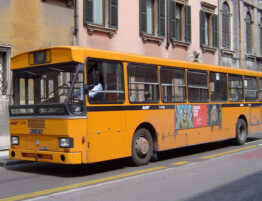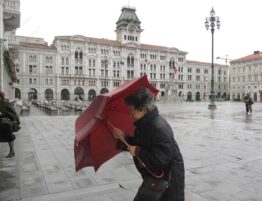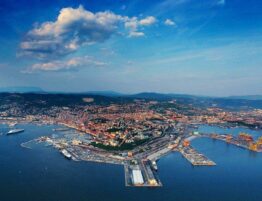
It is well known that the abnormal length of trials is one of the obstacles to investments in Italy. Italian Trials normally last an average of ten years.
Already in 1993 Italian lawmakers introduced – with the aim of reducing those numbers – the instrument of the mandatory appearance of the parties before the Judge, to carry out an informal questioning and to reach a settlement, but this attempt to unburden the courtrooms miserably failed, as it was relegated only to the Labour law proceedings.
In the Italian Civil Procedure Code, how-ever, a rule provided by the combined provisions of Article 185 and 185 bis, which give the Judge the power to make a settlement proposal and to summon the parties before him in order to achieve the conciliation, still remains.
The usefulness of this instrument is proven, not only by the renewed attention with which the lawmakers consider this institution to reform the civil trial, but also by a case which was recently handled by the Firm, in which one can clearly see how rapidity may prove to be crucial in the solution of the dispute.
The case can be summarized as follows: one of the leading global players in the logistics sector, having noticed the convenience of freight rates charged by a maritime carrier on a given Far East – Mediterranean route, gained a substantial container traffic from China to Germany and entrusted it on Carrier’s Haulage to that same maritime carrier.
However, due to the strict application of the First In – First Out clause, containers soon began to pile up at the unloading terminal in Italy, causing delays in the delivery to the final recipients.
To solve the problem, the logistics operator then turned to an Italian company, which also manages, through one of its subsidiaries, that very terminal through which the above mentioned traffic was transiting, so that it could be usefully managed – at that point no longer under Carrier’s Haulage conditions, but under Merchant’s Haulage conditions – from the unloading of the con-tainers in the port until their delivery to the final destination, including their repositioning at the port of landing. The Italian com-pany took charge of what was required, solving the problem that the logistics operator had with the final recipients.
At that point, however, a contrast between the logistics operator and the maritime carrier arose. The maritime carrier, when asked to deliver the containers to a port terminal located at the end of the sea leg, and no longer to the inland destination, adjusted ac-cordingly his requests for the so called container demurrage charges; thus making the time limit for their calculation start from the unloading in Italy, and not from the delivery of the containers in Ger-many.
Therefore, the maritime carrier requested, from the logistics operator, very high container demurrage charges. The logistics operator, rather unusually, turned it all to the (guiltless) Italian operator, retaining the last portion of the credit he was still claiming for the rendered logistic services.
A legal dispute arose: the Italian operator, assisted by our Firm, obtained a payment order requiring the logistics operator to pay for the price related to the logistics services.
The logistics operator opposed the order, at first by demanding the determination of the lack of jurisdiction by the Italian judge in favor of the German judge with the subsequent discharge of the order; alternatively, he demanded the ascertain-ment of the fact that the defendant suffered a loss three times the amount of the claim advanced by the applicant himself, so that the reciprocal claims were to be set off and the claimant had to be senten-ced to pay the exceeding amount to the defendant.
After examining the instituting applications the Court of Trieste summoned the parties, proposing the following settlement: the logistics operator was to pay to the Italian company three fourths of its debt and the two parties – having taken note of the Judge’s wish for the logistics operator to address his damage claims (should the conditions apply) to the shipping company – were to renounce to any other mutual claim concerning the matter.
The parties embraced the the judge’s proposal, settling the dispute according to the indicated conditions.
The dispute, thanks to an effective use of the tools of alternative settlement provided by the code, was solved in a few months, thus allowing the parties – by sacrificing their respective claims within limits that they considered acceptable – to save time, legal costs and other indirect costs related to the further continuation of the proceedings until definition by Court decision.
(Trieste Office – Alberto Pasino – 0407600281)








